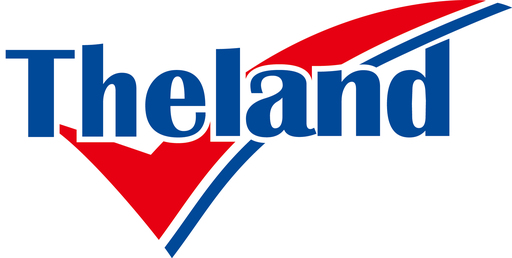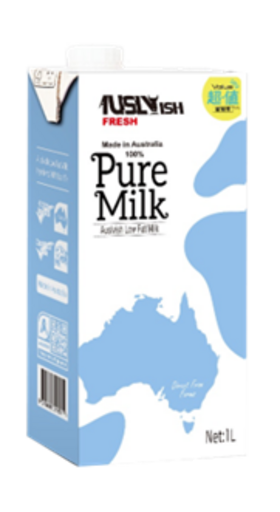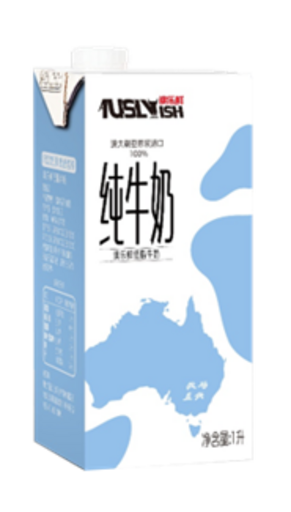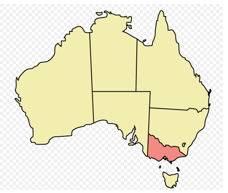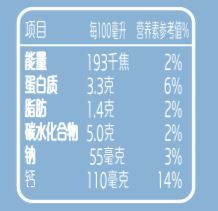
AQ Assured by AsureQuality, New Zealand's Government-owned food assurance company.
Auslvish Low Fat Milk (1L)
PRODUCT ATTRIBUTES VERIFIED BY AQ ASSURED
- 100% Australian Made
- Made from 100% raw milk
- 100% Fresh UHT Milk
- No added colours
- No artificial flavours
- No preservatives
- No added sugar
- Family Pack
 Origin
Origin
This product is 100% Australian made.
The raw milk is sourced from cows located on dairy farms within the state of Victoria, in the South of Australia.
The dairy sector is the largest agricultural industry in Victoria, accounting for more than 65% of annual national milk production.
Dairy businesses operating in Victoria, from the farm through to manufacturing and delivery are required to be licensed under Dairy Food Safety Victoria (DFSV).
DFSV is responsible for regulating the Victorian dairy industry to safeguard public health.
Theland Supply Chain
There are systems in place throughout the supply chain to ensure that each carton of milk meets high standards of quality and safety.
Select into any part of the supply chain to view the verified activities and assurances at each step.
The Farm
Farm Assurances- Animal Welfare
All animals are clearly identified through the National Livestock Identification System (NLIS) - Australia's system for identifying and tracking dairy cattle.
Farms must meet their obligations under the Australian Animal Welfare Standards and Guidelines for Cattle (2014) and other legislation to ensure that all aspects of animal health and welfare are considered. This includes performing health checks on the animals and having systems in place to isolate any unhealthy animals from the herd.
Protection from extreme heat or cold temperatures must be available to the cows, which can include access to trees and hedges that provide shelter.
Farm Assurances- Milk Supply
All milk supplier farms are required under the Dairy Act 2000 to be licensed with Dairy Food Safety Victoria (DFSV) and to comply with the conditions of the licence. This includes compliance with the relevant provisions of the Australia New Zealand Food Standards Code.
The farms are regularly audited by approved auditors to demonstrate compliance to the regulatory standards.
The milk must be filtered and chilled to below 5°C within 3.5 hours from the start of milking to ensure freshness and prevention of microbial growth.
The milk must be kept chilled while stored on the farm awaiting collection.
Farm Assurances- Water Use
In Victoria water for commercial use is regulated on behalf of the Ministry of Water to ensure sustainable use of the resource.
Legislation requires operating dairy farms to hold a license to use water and all water used on the farm is metered to ensure compliance.
Water used in the milking shed must be suitable for use and the farm should hold records of any testing.
Dairy Carriers-Assurances
Dairy carriers in the state of Victoria, Australia are required under the Dairy Act 2000 to be licensed with DFSV and to comply with the conditions of the license.
Dairy Carriers must also comply with all relevant provisions of the Food Act 1984 and the Australia New Zealand Food Standards Code (FSANZ).
The dairy carrier controls any potential food safety hazards by implementing a documented food safety program through all stages from collection, transportation, and delivery.
Prior to collecting the milk at the farm, the tanker driver takes a sample of the milk to be tested by the factory.
The milk is transported to the factory in tankers which maintain the temperature of the chilled milk.
Records are kept ensuring traceability of milk. This includes the tanker details, date and time of milk collection, temperature of milk, description and quantity of milk collected and delivery destination.
Once the delivery is made the tanker is cleaned in place (CIP) with approved chemicals and potable water.
The Factory
Factory Assurances
On arrival at the factory a sample of the chilled milk is taken from the tanker and checked for quality.
The milk is not accepted if it fails to meet required specifications.
Once approved for use, the milk is heat treated to ensure commercial sterility is achieved.
The milk is aseptically packed into individual tamper-proof Tetra Pak cartons.
All cartons are individually coded with the date, time, line number and jaw number for traceability.
The products are stacked onto pallets, stretch wrapped and barcoded for traceability.
Chemical, microbial, and sensory tests are conducted on the finished product to ensure that safety and quality requirements are met.
Regulatory Assurances
The Export Control (Milk and Milk Products) Rules 2021 require that water used within the factory must be potable.
Water potability standards are prepared by the National Health and Medical Research Council and activities must be undertaken to verify the quality of water against the Australia Drinking Water Guidelines.
In addition to company- based testing, samples of finished product are collected by DFSV auditors during routine audits and are assessed through the DFSV product surveillance program.
The dairy factory is regularly audited to ensure it complies with the regulations which include:
- The Dairy Act 2000
- The Food Act 1984
- The Australia New Zealand Food Standards Code (FSANZ)
- Dairy Food Safety Victoria (DFSV).
The factory must be registered with the Department of Agriculture and Water Resources and meet the requirements of The Export Control (Milk and Milk Products) Rules 2021.
A declaration of compliance statement must accompany each shipment attesting that the product is:
- Eligible for export
- Fit-for-human consumption
- Meets any specific importing country requirements
Transport
Transport Assurances
Prior to loading of the product, the cleanliness of the interior of both the transport vehicle (truck) and the shipping container are checked.
The freight forwarding company receive the containers at the wharf and prepare the shipment.
Shipping
Shipping Assurances
The shipping company must ensure that the products are accompanied by all EAD (export accompanied documents) that are required by the importing country, including:
- customs documents
- health certificates
- certificates of laboratory testing analysis
All other documents that are required by the importing country must be completed and approved before the container is sealed and loaded on board the ship.
The product is shipped to China and checked by China Customs on arrival. China Customs check the import documentation to confirm all requirements have been met and may test the product again prior to releasing it into the country.
Once cleared by Customs the product is sent to the warehouse.
Retail
Retail Assurances
The product arrives at the warehouse where it is managed using barcoding and traceability systems.
Product is loaded onto delivery trucks and distributed to individual shops, supermarkets, and other customers.
Retailers ensure that the product is fresh by using good stock rotation and checking best before dates before selling the product to consumers.
The AQ Assured™ brand and QR code can be scanned to provide consumer confidence of the safety and quality measures undertaken throughout the supply chain.
 Environmental
Environmental
The Farm
To ensure the sustainable use of water within the State of Victoria, water for commercial use is regulated on behalf of the Victorian Government Department of Agriculture and Water Resources (Ministry of Water). Dairy Farms using water in dairy sheds are required to hold a license to take and use water.
To improve on farm productivity whilst minimising environmental impact, farmers must comply with the Environmental Protection Authority Victoria (EPA) for the management of waste. These requirements are in place to ensure that effluent is contained within farm boundaries and does not enter water supplies or contaminate land.
The Factory
The UHT milk is produced in compliance with the relevant provisions of the Food Act 1984 (Vic), the Dairy Act 2000 and the Australia New Zealand Food Standards Code (FSANZ) in the conduct of the dairy business and the processing, handling, storage or transportation of dairy food.
The dairy company must comply with the requirements outlined in The Export Control (Milk and Milk Products) Rules 2021.
The dairy factory is licensed with the Department of Agriculture and Water Services (DAWR) to ensure that water is used in a sustainable way.
Audits are conducted by approved DFSV auditors at intervals of no more than seven months.
 Social & Ethical
Social & Ethical
Farms must meet their obligations under the Australian Animal Welfare Standards and Guidelines for cattle (2014) and the Victorian Livestock Management Act 2010. The act covers aspects of animal health, animal welfare, biosecurity and traceability.
Dairy farmers have food safety management plans in place to ensure that milk for human consumption is only sourced from healthy animals. This includes having systems in place to isolate any unhealthy animals from the herd to prevent their milk entering the supply chain.
 Safety & Quality
Safety & Quality
The safety and quality of the milk is ensured through systematic identification and control of hazards throughout the production chain.
The Farm
The farms must comply with the Australian Animal Welfare Standards and Guidelines and the Victorian Livestock Management Act (2010) and be licensed with Dairy Food Safety Victoria (DFSV).
To ensure that milk is produced in a sustainable, safe and lawful way, dairy farms operate under the rules of the Environmental Protection Authority (EPA) to improve on farm productivity whilst minimising environmental impact.
Stock are clearly identified at all times, this allows for individual animals to be permanently identified and provides a means of traceability.
The farms must have a documented Food Safety Program in place as part of adherence to the Australia New Zealand Food Standards Code Part 3.2 and 4.2.4 Part 1: Dairy Primary Production Requirements. This includes identifying potential hazards, corresponding controls, record keeping across all parts of the business. Farms are audited by Dairy Food Safety Victoria approved auditors against the Standard.
The milk is filtered and chilled to a temperature of below 5°C within 3.5 hours from the start of milking to prevent or reduce the microbial hazards in the milk.
Dairy Carriers
The dairy carriers must have a Food Safety Program in place, this includes measures to ensure that milk can be traced from farm to factory.
Records are kept to demonstrate that the milk has been maintained at a temperature of below 5 °C during transport. Thermometers are calibrated to ensure that milk temperature can be accurately measured.
Staff working within the dairy transportation industry must demonstrate the required skills and knowledge of food safety and hygiene as per requirements of the standard.
The vehicles (tankers) must comply with standard 3.2.3 of the Australia New Zealand Food Standards Code.
Dairy carriers are audited by Dairy Food Safety Victoria approved auditors against the standard.
The Factory
The factory must comply with all regulatory provisions of the Dairy Act 2000 (Vic), the Food Act 1984 (Vic) and the Australia New Zealand Food Standards Code for processing, handling, packing and storage.
The factory is audited by an approved auditor to verify the implementation of and continued compliance to an approved food safety program.
The product is made under specification to ensure safety and quality standards are maintained.
The milk is standardised and then ultra heat treated (UHT) to 135°C. It is then and aseptically filled into tetra pack cartons.
The final product is tested to ensure that it is safe for consumption and meets the nutritional descriptions on the label.
In addition to company based testing programs, Dairy Food Safety Victoria conducts an independent product surveillance program, where samples of finished product are collected by DFSV auditors at the six monthly audits. Results of the program provide data on food safety risk across the industry at product and manufacturer level, and on a compliance with the Food Standards Code. This program provides additional verification to the manufacturer's food safety systems.
 Nutrition
Nutrition
100% Australian Low Fat Milk
Auslvish Low Fat Milk contains no added colours, flavours, sweeteners or preservatives.
Product testing is undertaken using both in-house and independent laboratories at each step from raw milk collection, during processing, and again on completion of the final product to ensure compliance.
This product contains 100% natural protein. Protein is important for the growth and repair of the body's cells and for building muscle.
The product contains 100% natural milk calcium. Calcium is an important source of nutrition for building strong, dense bones in early life, and in keeping bones strong and healthy in later life.
